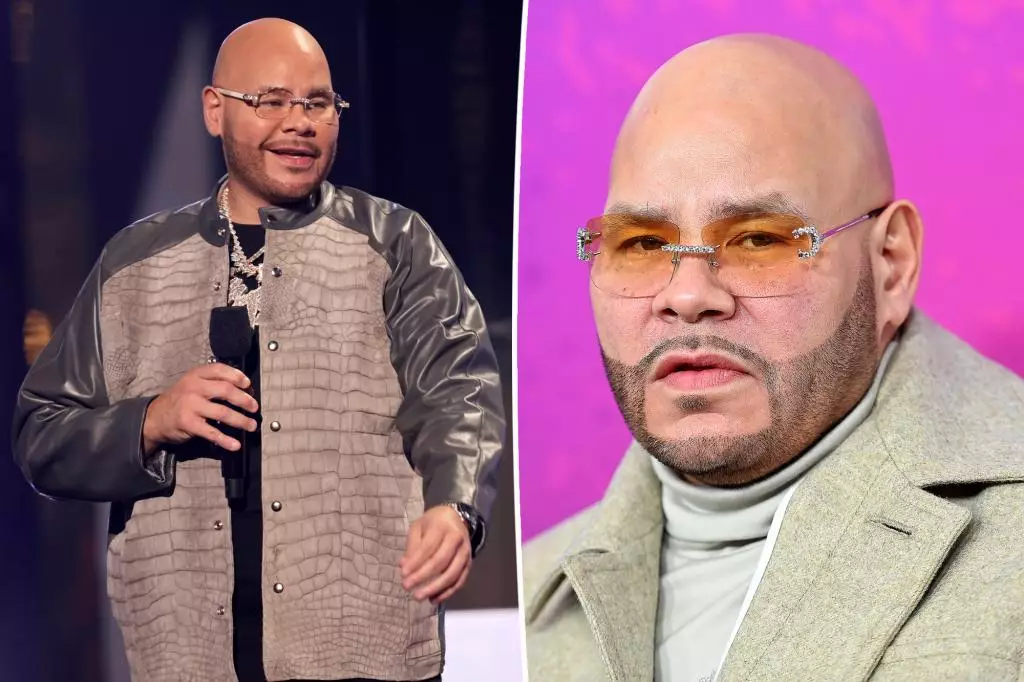The hip-hop community is no stranger to scandals, but few allegations carry the weight of potent disbelief and moral outrage like those recently directed at renowned rapper Fat Joe. The discourse surrounding the $20 million lawsuit spearheaded by his former hypeman, Terrance “T.A.” Dixon, has ignited widespread discussion and condemnation, ultimately posing emboldened questions about celebrity accountability and the ethics of fame.
Explosive Allegations Surface
At the heart of the lawsuit are shocking accusations of sexual incidents involving minors. Dixon has boldly alleged that he “personally witnessed” Fat Joe engaging in sexual acts with girls aged 15 and 16, which has thrown the rapper’s public persona into question. These claims, documented in court filings, paint a troubling picture that contrasts starkly with Fat Joe’s celebrated status as a figure within the music industry. The accusations involve explicit details of purported exchanges where young women allegedly received monetary compensation or material goods in return for sexual favors, creating a grotesque narrative of exploitation hidden under the guise of celebrity.
Such a case raises essential ethical discussions regarding the relationships between artists and their admirers, particularly minors. Is it possible that the power dynamics inherent in celebrity culture create an atmosphere where vulnerable individuals are encouraged—or even coerced—into engaging in inappropriate relationships? The legal battleground now illustrates the fine line between consent and coercion—a topic that society is grappling with in various spheres.
The Repercussions of Fame and Trust
Dixon’s allegations extend beyond sexual misconduct; they delve into coercive labor exploitation and financial deceit. He claims that, during his years with Fat Joe, he was underpaid and deprived of due credit and royalties—outcomes that echo the struggles faced by many in the music industry. This dimension of the lawsuit invites reflection on the broader systemic issues at play within the entertainment sector, especially regarding support for those who work behind the scenes.
Rather than merely being a celebrity spectacle, this case compels us to confront how artists manage their relationships with their teams. Dixon described himself as a “lyricist, background vocalist, security team member, and creative collaborator,” yet he asserts that he was manipulated and exploited. This duality of creator and overseer often leads to murky waters, where fair treatment can become an afterthought to ‘the hustle’ of fame.
Public Perception: Straddling Guilt and Innocence
As the story unfolds, it’s crucial to consider the complex role of public perception. Fat Joe has outlined his denial of any wrongdoing through attorney Joe Tacopina, insisting that these allegations are mere tactics for media attention and financial gain on Dixon’s part. Tacopina’s claims that the women involved deny having been victimized by Fat Joe further complicate the narrative. However, skepticism would be a reasonable response to such assertions—especially in a framework that often silences victims out of fear of reprisal or disbelief.
What becomes particularly confounding is how narratives can have a dual impact; while the accused fights to maintain their reputation, victims can grapple with the fallout of speaking out. The lines between reality and speculation blur, creating confusion amid public commentary. Societal tendencies toward sensationalism can obscure the crucial issues at hand, perhaps even glossing over the very valid concerns surrounding accountability in a culture that frequently idolizes its stars.
Legality Versus Morality: A Fractured Dialogue
What emerges is a landscape that challenges the dichotomy of legality versus morality. Legal systems often struggle to fully address the complexities associated with consent, exploitation, and power imbalances. In this case, Dixon’s allegations might provide a framework to scrutinize how the law engages with moral imperatives, particularly those involving individuals who are perceived as powerless.
As the courts take on the tumultuous battle between the accuser and the accused, a broader conversation about the responsibilities artists have toward their fans, especially minors, gains urgency. But should artists be held to a higher moral standard given their visibility and influence? Or does the nature of celebrity culture inherently complicate these constructs, leading to blurred lines in accountability?
The continued unfolding of Fat Joe’s legal troubles lays bare the moral fabric of celebrity and power dynamics, ultimately urging a closer examination of how culture shapes our perceptions of justice, victimization, and accountability in an arena where fame often overshadows principle.

Leave a Reply